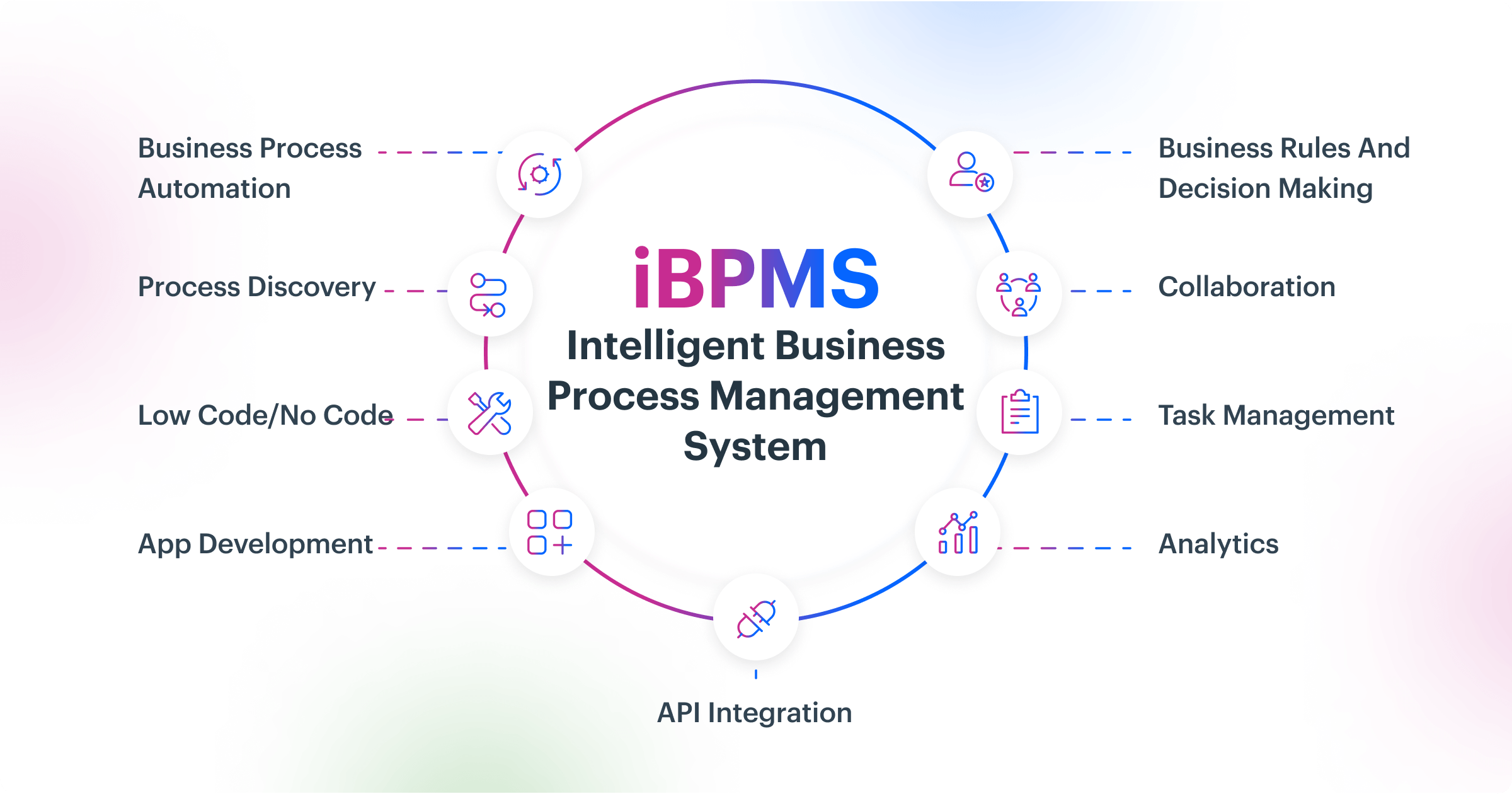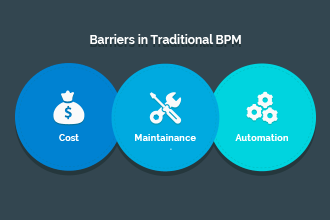What is iBPM?
iBPM stands for Intelligent Business Process Management, it takes an already great BPM tool and enriches it with additional intelligence, including features like cloud computing, event processing, real-time decision-making, and systems crosslinking.
In simple terms, intelligent business process management goes a leap beyond traditional BPM and builds a dynamic technology environment based on value-added knowledge work.
Since its introduction as a concept by Gartner in 2012, businesses have been calling iBPM the next big thing in the enterprise BPM domain.

How Should You Apply iBPM?
iBPM sounds like a new concept, but it was already happening when enterprises used business process management systems (BPMS) in combination with other smart tools to optimize their processes.
Intelligent BPM as a single software is still an evolving concept. iBPMS software embeds enriched processes like cloud messaging, message-oriented middleware, IoT integration, complex event processing, and business activity monitoring.
As a consolidated tool, iBPMS leverages business rules, big data mining, machine learning, cloud computing, mobility and social features, etc.
According to Tom Nolle of CIMI Corporation, there are 3 different use cases of iBPM:
1) Service extension for mobile users
To bring mobile users closer to the process no matter where they are.
2) Expansion of analytics capabilities
To add more firepower to a BPM’s analytics and spot trends for process optimization.
3) Capability to process real-time complex events
To run complex event processing (CEP) and offload the burden of analytics
Any agile BPM tool that does the above is an iBPMS by definition.
How is an iBPMS Different From a BPMS?
Intelligent business process management suites (iBPMS) are the more useful, likeable, and successful version of BPM. It’s like the more pleasant, savvy son who takes over the business from his crotchety, hard-to-like father.
Jim Sinur coined the term iBPM when working with Gartner. He says that iBPM emerged as a result of BPM’s inability to become dynamic. Businesses needed intelligent processes and BPM fell short of delivering the operational responsiveness to leverage latest technological advances.
According to Sinur, “Before intelligent processes came along, processes needed to be pre-programmed and have happy paths of execution.It was clear that the kind of processes companies wanted to attempt went way beyond the kind of process technologies [that were] available [around] 2011.”
Here are the Differences Between iBPM and BPM:
- Complex event processing
- Real-time analytics to support Intelligent Business Operations
- Interactive social media platform
- Good support for mobile platforms
Benefits of iBPM:
- Better integration with other tools
- More advanced analysis
- Tools for citizen developers rather than just programmers
- Ability to handle complex events
- Cloud capabilities
- Ability to move towards the Internet of Things (IoT)
How to select right iBPMS service Provider for your Business
Finding the right iBPM partner can be overwhelming despite having a clear and well-structured strategy. However, the right iBPMS software provider will depend on where your business processes currently stand, the skilled resources you have, and how you access data.
Once you've made your choice, you may take advantage of real-time decision management, which is intelligent rather than just automating operations.
So, what next?
If you haven’t chosen the Intelligent Business Process Management Suite (iBPMS) for your organization yet, it’s high time you do it. Choosing the right business process management software is critical for any company that wants to streamline its processes across human and system tasks. Choose a platform that meets your requirements and that your company is ready for.
Kissflow Platform is a human-centric, cloud-based, licensed software, built for business leaders to create their own automated business applications. Start your free trial now!









.webp?width=285&height=570&name=Kissflow-BPM-g2-review-white%20(3).webp)




